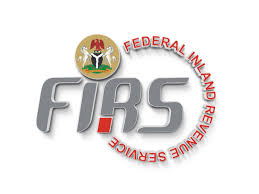The Federal Inland Revenue Service (FIRS) has announced a significant shift in Nigeria’s corporate taxation policy, raising the minimum annual turnover for tax liability from N25 million to N50 million.
This was disclosed at a high-level stakeholders’ engagement held in Kano on Saturday, where business leaders, academics, civil society actors, and government officials convened to dissect the newly signed tax reform law and its implications for Nigerians.
The event was jointly organized by the Office of the Senior Special Assistant to the President on Community Engagement (Northwest) and the FIRS.
In his opening address, the Senior Special Assistant to the President on Community Engagement (Northwest), Abdullahi Tanko Yakasai, said the forum was aimed at dispelling misconceptions surrounding the new tax policy and sensitizing the public on its benefits.
“There has been a lot of misunderstanding about the new tax law,” Yakasai stated. “This engagement is designed to clear the air and provide accurate information, especially on how revenues will be shared: 50 percent equally among states, 30 percent based on consumption levels, and 20 percent on population.”
He highlighted key features of the tax reform, including the revised thresholds and exemptions, which he described as “pro-people and pro-business.”
According to Yakasai, individuals will now only become liable for personal income tax if they earn at least N800,000 monthly, effectively shielding low-income earners from tax burdens.
“Additionally, there will be no taxation on essential sectors such as food, healthcare, and education,” he said, adding that the controversial inheritance tax had also been scrapped entirely.
Another major development in the law is the full exemption of members of the armed forces from personal income tax obligations—a move Yakasai described as part of a broader effort to recognize their service and reduce their financial burdens.
A standout provision of the new law is the digital harmonization of tax collection systems. The FIRS is expected to manage a unified platform that will streamline tax payments and eliminate the scourge of multiple taxation by federal, state, and local revenue agents.
“This reform is progressive, inclusive, and was designed with the welfare of the average Nigerian in mind,” the presidential aide emphasized.
Reacting to the reforms, Dr. Zainab Musa, a taxation expert and lecturer at Bayero University, Kano, hailed the move as a bold step towards fairness in the tax system.
“Raising the corporate tax threshold to N50 million is a clear message that the government is committed to encouraging SMEs rather than stifling them,” she said.
She added that the harmonization of tax systems could mark the end of what many businesses have called “revenue harassment” by multiple tax agents.
The reform, which is part of the current administration’s broader economic recovery agenda, is expected to improve compliance, boost revenue generation, and create a more transparent tax environment.
Do you want to share a story with us? Do you want to advertise with us? Do you need publicity for a product, service, or event? Contact us on WhatsApp +2348183319097 Email: platformtimes@gmail.com
We are committed to impactful investigative journalism for human interest and social justice. Your donation will help us tell more stories. Kindly donate any amount HERE




